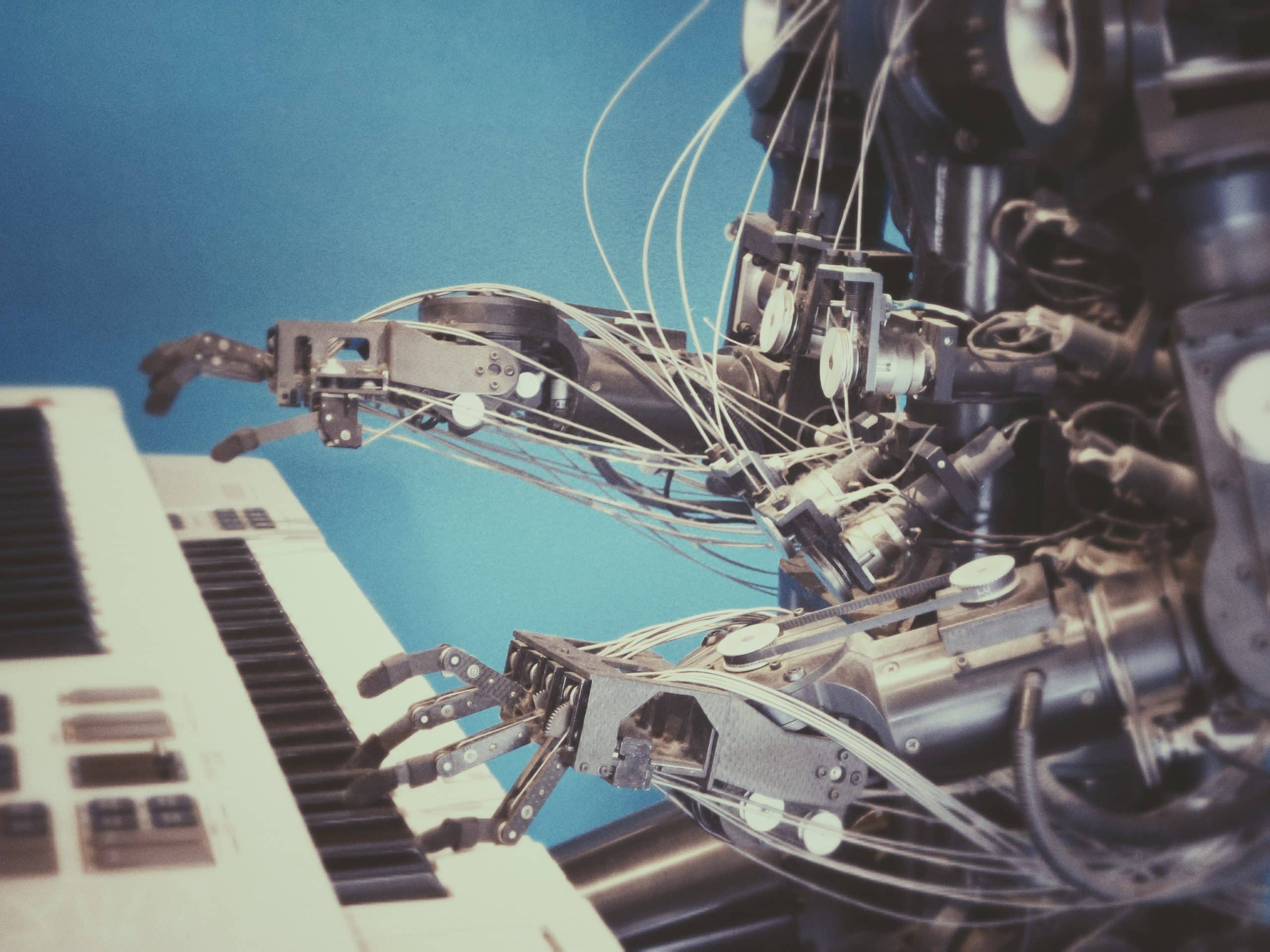The impact of artificial intelligence on jobs

In the grand arena of modern technological advancements, few innovations have garnered as much attention and controversy as Artificial Intelligence (AI). As you stand at the forefront of the 21st-century business landscape, you find yourself in the midst of a colossal shift steered by AI, with its profound implications on jobs. This piece seeks to delve into the nitty-gritty of this issue, shedding light on the myriad ways AI is altering the job market, for better or for worse.
The Prominence of AI in Today’s Job Market
The rise of AI is undeniable. From autonomous vehicles to predictive analysis, AI is redefining the very contours of numerous industries. But what does this spell for the job market?
A découvrir également : Integrating AI into financial services
Infused within our very societal fabric, AI is no longer a novelty but an everyday reality. It’s reshaping the way businesses operate, offering a new level of efficiency and precision with its capabilities. However, the increased inclusion of AI in the job market also brings with it a wave of uncertainty and anxiety for workers worldwide.
AI and Job Displacement: A Real Concern?
One of the most heated debates surrounding AI revolves around the potential displacement of jobs. The fear isn’t unfounded. McKinsey Global Institute predicts that by 2030, up to 800 million global workers could be replaced by robots and AI. This section seeks to explore this controversial issue in depth.
A découvrir également : The impact of social media on society
AI and automation can undoubtedly handle repetitive tasks more efficiently than humans. Yet, this doesn’t necessarily spell doom and gloom for the human workforce. Yes, certain jobs may become obsolete, particularly those that involve routine, manual tasks. However, it’s also important to remember that every industrial revolution in history has led to the creation of new types of jobs, often ones that we couldn’t have foreseen.
AI’s Role in Job Creation: The Bright Side
While AI may render certain jobs obsolete, it’s essential to underscore its potential in job creation. As AI evolves, it invariably gives rise to new professions, sectors, and opportunities.
AI’s rise can trigger an array of job opportunities, particularly in the fields of AI development and maintenance. New roles such as AI Specialists, Data Scientists, and Machine Learning Engineers have emerged, commanding lucrative salaries and burgeoning opportunities. Furthermore, AI’s integration into different industries like healthcare, finance, and transportation can lead to the creation of specialized roles in these sectors.
The Advent of AI-Augmented Jobs
In addition to creating new jobs, AI also holds the potential to augment existing ones, transforming the way we work rather than replacing us. Let’s delve into this phenomenon in more detail.
AI can be used to automate and streamline routine tasks within a job, freeing up employees to focus on more complex and creative aspects of their work. For instance, AI could take over data entry and analysis in a marketing job, allowing the marketing professional to focus more on strategizing and creative planning. This symbiosis of human creativity and AI efficiency can lead to enhanced productivity and job satisfaction.
The Need for Skill Upgradation in the Age of AI
With the advent of AI, there’s an urgent need for skill upgradation. As AI continues to evolve, so too must our skills and abilities to stay relevant in the job market.
It’s essential to remember that while AI can perform many tasks, it still lacks the human touch – the ability to understand emotions, the knack for creative thinking, and the capability for critical decision-making. These are the skills that will become increasingly valuable in the job market. Simultaneously, technical skills related to AI, such as programming and data analysis, will also become crucial. Thus, continuous learning and skill upgradation will become the new norm in the age of AI.
Preparing for an AI-Dominated Future
As AI continues to permeate the job market, it’s essential that we adequately prepare ourselves for this new reality. This section offers insights on how to navigate through an AI-dominated future.
To thrive in the new job market, it will be crucial to embrace AI rather than resist it. This includes staying up-to-date with the latest advancements in AI, acquiring relevant technical skills, and cultivating uniquely human skills like emotional intelligence and creativity. Furthermore, policymakers and educators must play a proactive role in redefining education and training programs to align with the changing job market dynamics.
In the grand scheme of things, AI’s impact on jobs evokes a spectrum of perspectives. While it does stir concerns about job displacement, it’s equally crucial to acknowledge its potential in job creation and augmentation. As we stand at the brink of this AI revolution, our readiness to adapt and evolve will determine our success in the new job landscape.
The Role of Policy Makers for a Smooth AI Transition
As the AI revolution picks up pace, it’s imperative to recognize the crucial role that policy makers play in facilitating a smooth transition into this new era. Policymakers have the responsibility to ensure that the benefits of AI are equitably distributed while mitigating its potential drawbacks.
Fostering a robust regulatory environment for AI is one of the key responsibilities of policymakers. This involves creating legislation that respects ethical standards and protects individuals’ rights, all while promoting innovation and growth. For instance, policies around data privacy and AI transparency are crucial to building public trust in these technologies.
Additionally, policymakers should help shape the future of work by redefining education and training programs. As AI continues to infiltrate the job market, there’s a pressing need to skill up the workforce accordingly. This may involve integrating AI and data literacy into school curricula, promoting lifelong learning initiatives, and creating reskilling and upskilling programs for workers in jobs most at risk of automation. Policymakers should also focus on social safety nets for those who might be displaced by AI, such as unemployment benefits and job transition programs.
In essence, policymakers have the power to steer the course of the AI revolution. Their actions can ensure that AI becomes a boon rather than a bane for the job market.
Conclusion: Embracing the AI Revolution
In conclusion, the impact of AI on jobs is a multifaceted issue that presents both challenges and opportunities. While fears of job displacement are not without basis, the potential of AI to create new job avenues and enhance existing roles cannot be overlooked.
To leverage the benefits of AI, it’s imperative to embrace the change. This not only involves staying abreast with AI developments and upgrading our skills but also fostering an environment conducive to AI adoption. Policymakers have a crucial role to play in shaping this environment, from crafting robust AI regulations to redefining education and skilling initiatives.
The advent of AI brings with it a new revolution in the world of work. As we stand on the precipice of this change, our approach to the AI revolution will shape our individual and collective futures. Instead of resisting this change, let us embrace it, equip ourselves with the necessary skills, and navigate the future of work with confidence and optimism. After all, every revolution brings with it the promise of a new dawn, and the AI revolution is no different.
